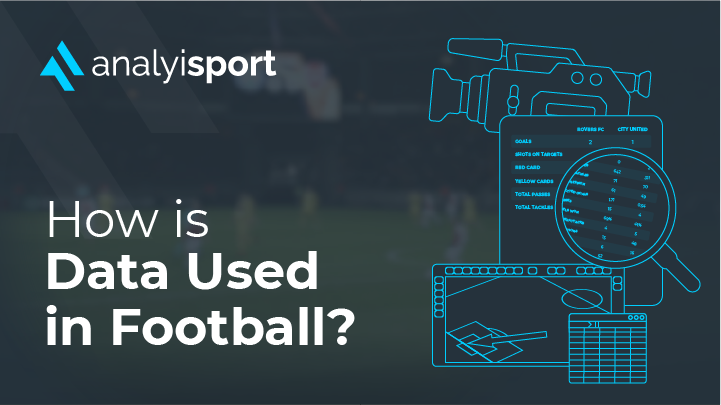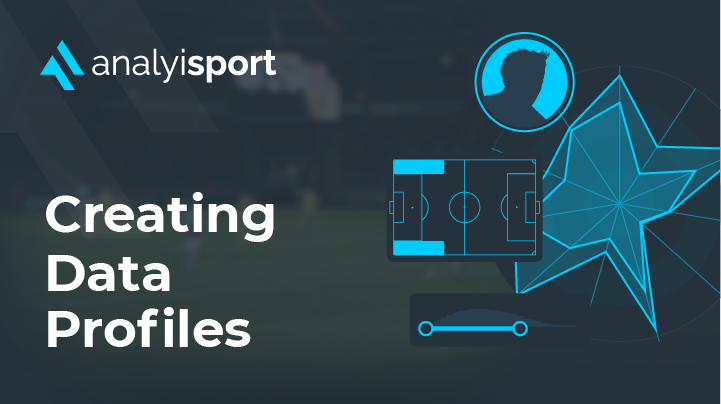Why Do Football Players Need to Understand Data?
Why Do Football Players Need to Understand Data?
Modern footballers are watched very closely on the pitch and not just by fans. Every movement that a player makes during a match is tracked, each kick of the ball is recorded, and the GPS vests they wear under their shirts record their speed, acceleration and distance covered. Even training sessions are videoed.
All this data has changed football both on and off the pitch. One of the key things that it’s achieved is allowing clubs to assess the performances of players more precisely and objectively. This has helped coaches improve their tactics, train players more effectively, and make better signings.
But data in football has mostly been talked about as something that is used by specialist analysts. These analysts will have a background in data science, might know a coding language or two, and will have a thorough understanding of the most advanced metrics used in the game. The analyst then translates any insights they have into the language of football that the coaches and players can understand. Surely a player doesn’t need to know anything about metrics, algorithms and machine learning?
A few years ago, players could get away with knowing nothing about analysis, but it’s now a central part of their daily lives. Screens showing player stats have made it into changing rooms. Video screens at training grounds show the players the latest analysis. Even in academies, it’s a regular part training and match preparation.
Data is everywhere in football. Let’s take a look at how players can benefit from understanding it.
How Data Can Help Football Players in Contract Negotiations
Contract negotiations can be tricky for any player. Even with the help of an experienced agent, there can be lots of questions swirling around the mind of a player. How much should they really be paid? Is it fair that a teammate earns considerably more than them? Are they not being fairly rewarded for their contribution?
One way to show just how much they contribute to their team is to use data analysis. It’s an approach that has been used with success by Belgian midfielder Kevin de Bruyne.
He used his knowledge about data analysis to collaborate with the sports analytics company Analytics FC, putting together a report on his contribution to Man City. It highlighted his fantastic chance creation metrics, his impressive performances in comparison to similar players such as Jadon Sancho, and how his output compared to players on higher wages.
“Kevin was already convinced that he is integral to the team and that City was best placed for him to continue his career,” said Jeremy Steele, co-founder of Analytics FC. “Despite the quality of his performances on the pitch being clear for all to see, he wanted to see this clearly by the metrics.”
The data doesn’t lie. It shows the true worth of a player to the team. This makes it the perfect negotiating tool for any player who knows that they’re being underpaid.
How Data Can Help Players Find a New Club
As well as negotiating with their current club, players have started using data to explain what they can offer to other clubs when it’s time for them to move on. Once again, it’s about being able to provide clear and precise evidence that can convince the decision-makers at the club.
One player who has used data to help them find a new club is Memphis Depay. He hired the services of data firm SciSports when he felt that it was time to leave Manchester United. Working together, Depay and the company’s analysts looked through his past performances and identified what he did well. They then searched for appropriate clubs who’s football philosophy would bring the best out of him.
“SciSports helped me find the best club according to my playing style,” the Dutch attacker revealed. Instead of moving to a new club based on who was interested, Depay showed that it’s now possible for players to use data to proactively find the right move for them.
Both Depay and De Bruyne hired analysts, but it’s possible for a player who knows enough about data to put together their own reports. All they need is access to data via a subscription at Wyscout or StatsBomb, or even use the free data available on sites such as FBref.
How Data Can Help Players Improve their Performances
Most players at professional clubs will get regular feedback on their performance levels from the club’s own analysts. They will be shown stats about how they compare to other players, given advice on how to play against forthcoming opponents, and shown how they can improve their tactical play and technical abilities.
For example, when Raheem Sterling was at Man City, his attacking play was considerably improved by working with analyst Piet Cremers. Cremers used a mix of one-on-one coaching, video clips and data to help Sterling understand what he needed to do.
When working with a coach in this way, it helps the player immeasurably to be able to understand the data they’re being shown and how it relates to what they do on the pitch. Although analysts are skilled at translating data into football terms, being able to intelligently discuss the data with them helps a player to better understand how they can improve and what they need to do differently.
Being able to understand the data themselves, also helps players to analyse their own performances when the club’s analysts don’t have time to give them detailed one-to-one feedback. Some clubs are making sure that players are now actively involved in the analysis, working in groups to discuss their own performances and how they can improve. It’s a technique that Steve Cooper is known to use at Nottingham Forest.
How Data Can Help Players Find Work When They Retire
Staying in football after retiring as a player is an attractive prospect for many footballers. It allows them to keep on working in the sport they love, pass on their knowledge and experience, and remain a part of the football community.
A common route for staying in the sport is to go into coaching, whether as a head-coach, first-team coach or an academy-coach. As well as requiring coaching badges, this job is starting to involve a good knowledge of data. There’s a lot of overlap now between coaching and analysis and that overlap is continuing to grow.
Leanne Champ is one example of a former player who is now working with data. Once an England international, she now works in the WSL at Chelsea as a first-team opposition analyst and coach.
The two parts of her role complement each other. “Being at Chelsea, working in different various roles, I think it’s given me that experience to help develop younger players,” she explained in May 2022, talking about her previous role in the academy. “I think even doing the opposition [analysis] side of it has certainly helped with my coaching.” This combined approach also makes her more employable. If she ever comes to leave Chelsea, she’ll have more than one career pathway open to her.
There are a wide range of ways in which an understanding of data can help football players. from contracts and transfers to improving their performances and finding a job in the game after retirement. As data continues to become ever more crucial, players need to embrace analysis and use it to help themselves and their teams thrive.
Related Courses:
Share this article
Our Learning Pathways
AnalyiSport is for everyone who is passionate about analysis in football. Where are you in your development journey?
Become a Football Scout
As more clubs than ever look to build data into their recruitment process, an understanding of recruitment analysis is your ticket to success in the game.
Related Articles
Our team provides news and insights from the cutting edge of football analysis.







